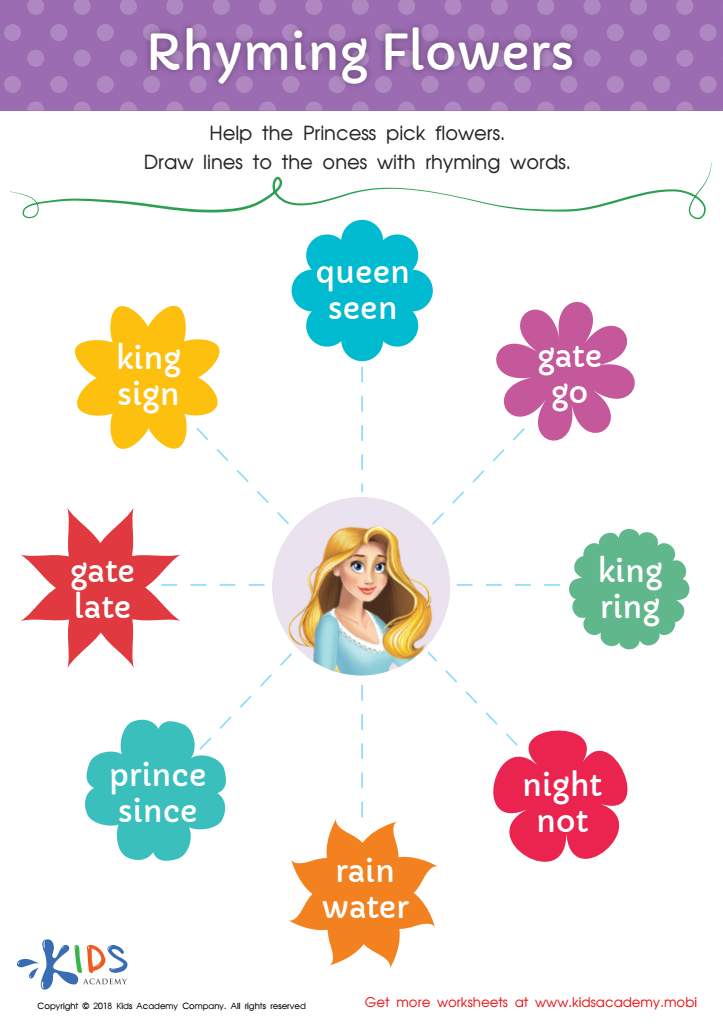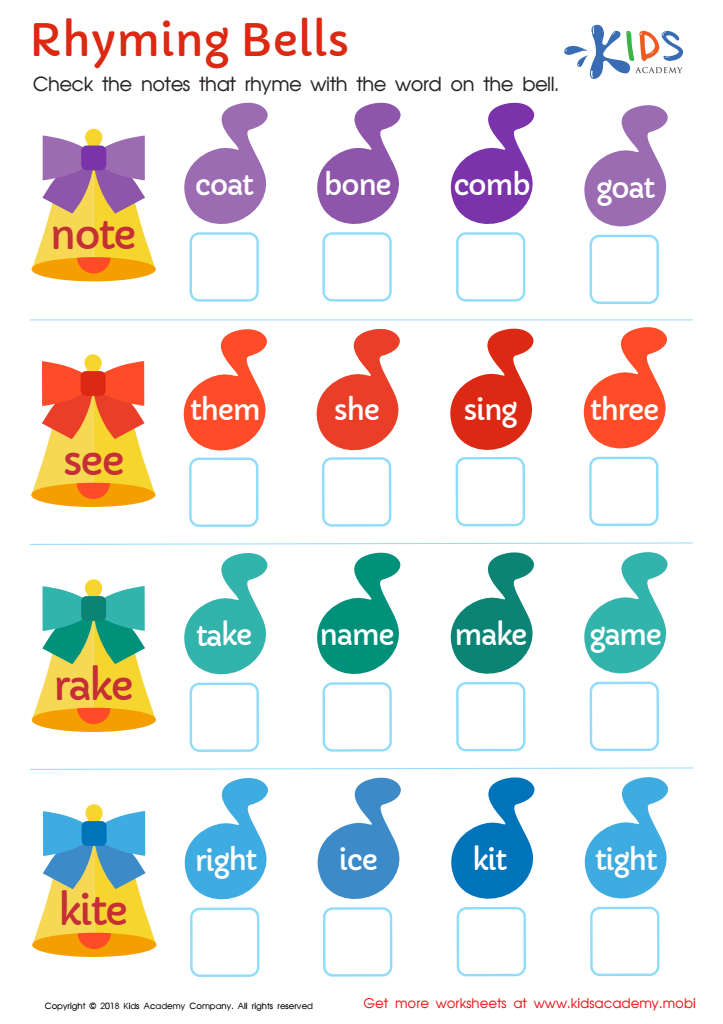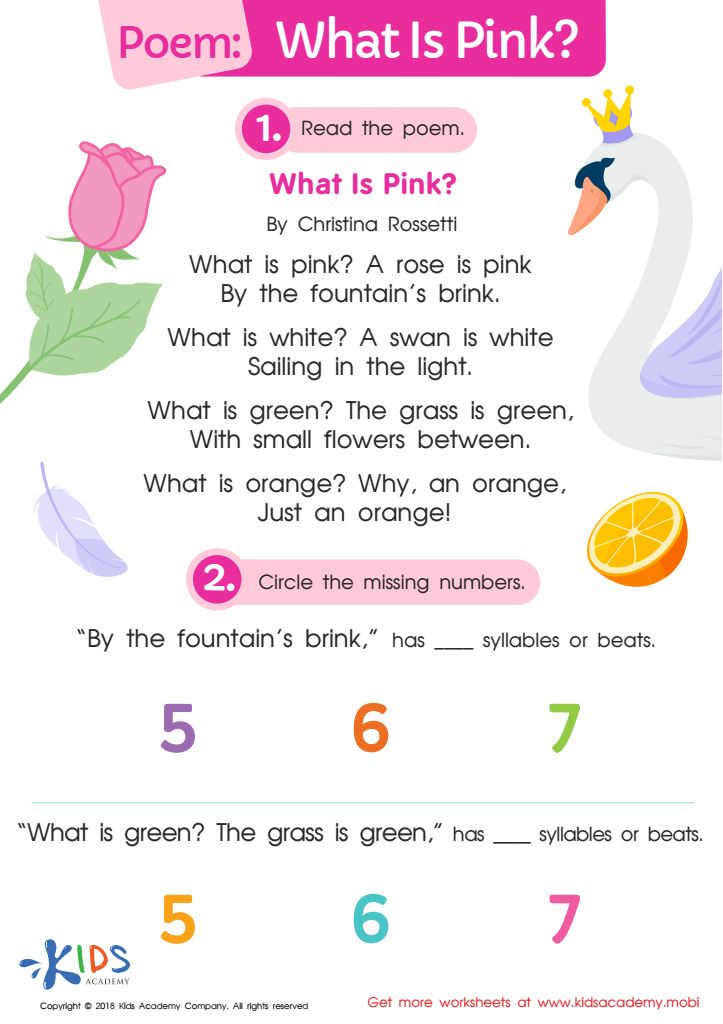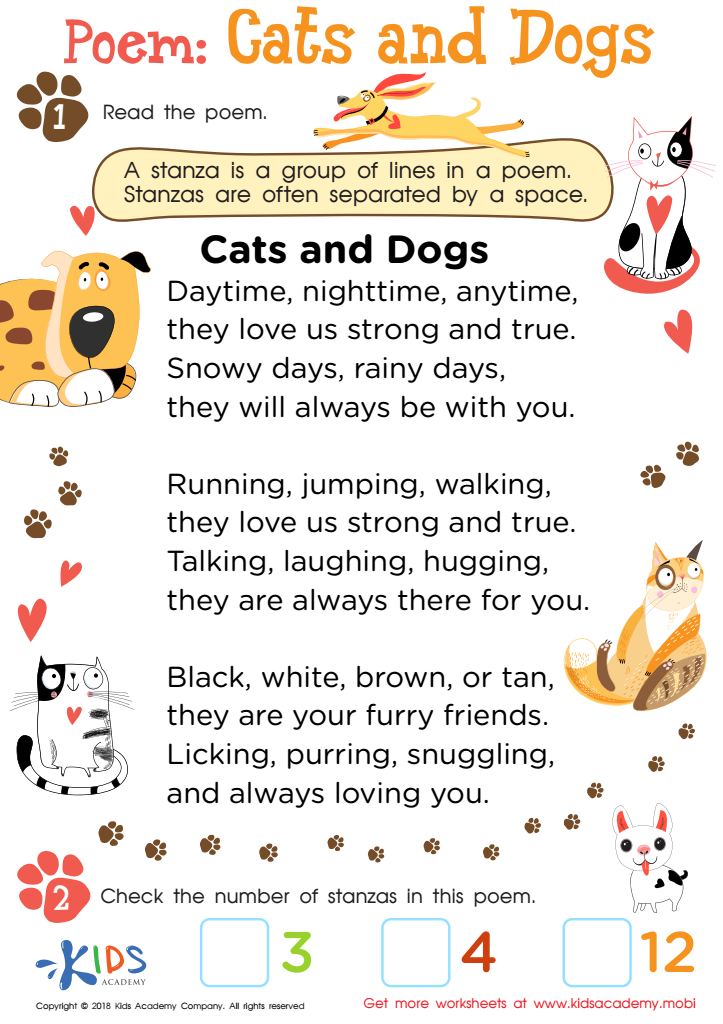Vocabulary enhancement Normal Rhyming Worksheets for Ages 4-8
8 filtered results
-
From - To
Discover our engaging Vocabulary Enhancement Rhyming Worksheets, tailored for kids aged 4-8! These fun and interactive worksheets are designed to boost your child's language skills through the delightful world of rhymes. By seamlessly blending learning with play, our materials help young learners recognize sound patterns, expand their vocabulary, and improve their reading proficiency. Each worksheet is crafted to captivate children's interest while fostering essential early literacy skills. Perfect for parents and educators, our rhyming activities support a solid foundation in language development, ensuring a brighter academic future. Explore our collection today and watch your child's vocabulary soar!


Rhyming Words: Assessment Worksheet


Rhyming Flowers Worksheet


Rhyming Words Rhyming Worksheet


Rhyming Bells Worksheet


First Words: Picture Rhymes Worksheet


Poem: What Is Pink? Worksheet


Poem: Cats and Dogs Worksheet
Vocabulary enhancement through normal rhyming for ages 4-8 is crucial, as it lays the foundation for essential language and cognitive development in young children. During these formative years, children's brains are highly receptive to learning new words and sounds. Rhyming is a fun and engaging way to introduce them to language patterns, phonics, and vocabulary, making the learning process enjoyable and effective.
Rhyming helps children recognize and predict sound patterns, which is an essential skill for reading readiness. It aids in phonological awareness by teaching them how to identify similar sounding words and discern subtle differences in pronunciation. This skill can significantly boost their reading and writing capabilities as they progress in school.
Moreover, incorporating rhyming into daily activities enhances memory and word recall. The rhythmic and repetitive nature of rhymes makes it easier for children to remember and retain new vocabulary. This improved retention can contribute to better academic performance and communication skills.
Parents and teachers should care about vocabulary enhancement via rhyming because it not only supports literacy development but also fosters creativity and imagination. Children often enjoy creating their own rhymes, which encourages creative thinking and self-expression. Furthermore, rhyming activities promote social interaction when done in group settings, enhancing social skills and teamwork. Hence, rhyming is a powerful and multifaceted tool in early childhood education.

 Assign to My Students
Assign to My Students





















